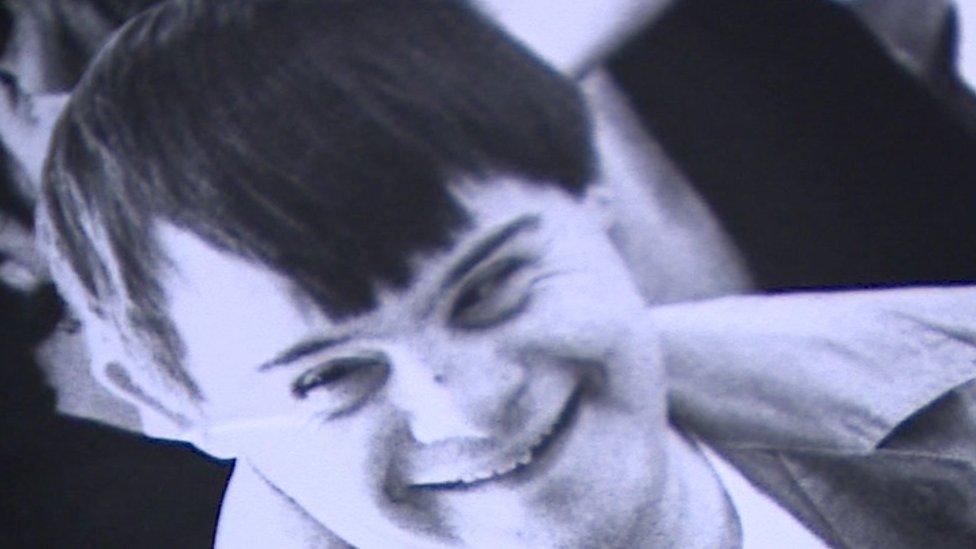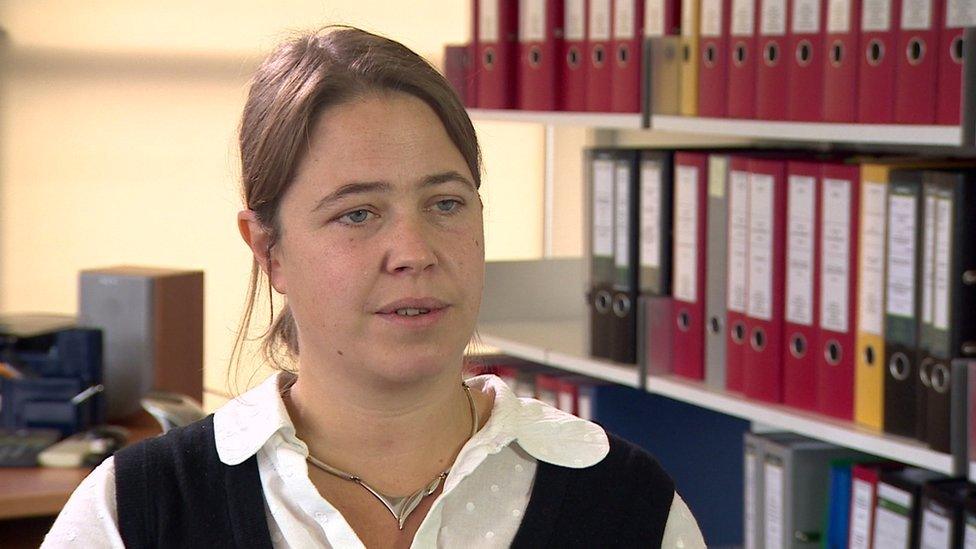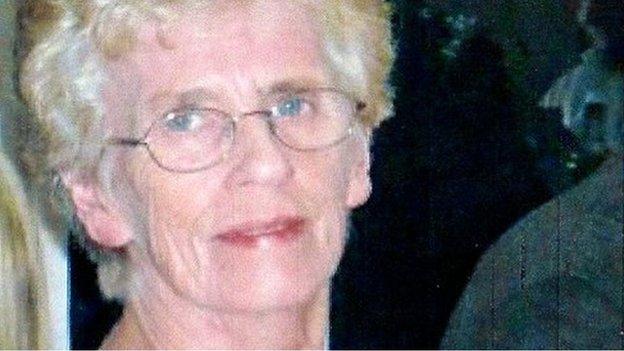Hospital sorry for 'do not resuscitate' order on patient with Down's Syndrome
- Published

Andrew Waters' family were horrified when hospital staff decided he should not be resuscitated
A hospital trust has apologised for placing a "do not resuscitate" (DNR) order on a patient with Down's Syndrome - and listing his learning difficulties among the reasons for doing so.
The family of Andrew Waters was not consulted or informed and found out only after he was discharged from hospital in Margate, Kent, in 2011.
East Kent Hospitals NHS Trust has admitted breaching his human rights.
Mr Waters died in May, aged 53, but the order did not have a bearing.
Andrew's brother Michael Waters spoke to the BBC's Jane Dreaper.
His family has never sought compensation over his death.
However, BBC News can report the case surrounding the DNR order after getting a court order protecting Mr Waters' anonymity lifted, with the consent of his family.
Mr Waters loved dancing, swimming and drama groups.
His family were horrified when, during a hospital stay related to his dementia, staff decided he should not be resuscitated if he developed heart or breathing problems.
The order listed Down's Syndrome and his learning difficulties among the reasons.
'Disgraceful'
Andrew's brother, Michael Waters, said: "For someone to make that decision, without consulting a member of the family or any one of his carers, was just totally unacceptable.
"No-one has the right to make such a decision in such a disgraceful way... to put those reasons down.
"We were there at hospital and involved in his care at every point.
"The form was a folded-up piece of paper found in his bag after discharge, by his carers.
"There was nothing wrong with Andrew's health at the time which would have had an effect on resuscitation."

Solicitor Merry Varney has pursued cases to clarify how hospital staff should use resuscitation orders
The Waters family have welcomed the trust's admission that it breached his human rights.
Michael Waters added: "It's taken a long time for the hospital to admit this, which we've found hard.
"All we ever wanted from this case was a simple apology.
"People with Down's Syndrome deserve the right to live like you and me."
'Unreserved apology'
In a statement, East Kent Hospitals University NHS Foundation Trust said: "The trust accepts that it breached its duty owed to the patient.
"We apologise unreservedly for this and the distress caused.
"Actions have been taken to ensure this does not happen again and the trust has now reached a resolution with the family."
The lawyer who brought the case says trust breaks down between doctors and families if the reasons behind resuscitation orders are not communicated effectively.
Merry Varney, a solicitor with Leigh Day, also fought the case of Janet Tracey, which established last year that doctors had a legal duty to consult and inform patients about DNR orders.
She said: "Sometimes they can be really aimed at trying to give a patient a dignified death.
"This is not about giving up on someone or writing them off.
TV dramas
"But that's generally what I hear people say they feel, if they find out about these after the decision has been made.
"I still receive around three calls a fortnight from families or patients who are concerned about what a DNR means and whether it means not to treat more generally.
"Unfortunately, the portrayal of cardio-pulmonary resuscitation in TV dramas sometimes suggests it's a quick fix and works for everyone.
"That's simply not the case - and there's a real onus on healthcare professionals to communicate that."
'Scandal'
The learning disability charity Mencap described Andrew Waters' case as "unacceptable".
Its head, Jan Tregelles, said: "Many families who have lost their loved ones to poor care within the NHS have told us about the inappropriate use of DNR.
"There have been circumstances where these notices have been applied without the knowledge or agreement of families.
"And the orders have also been applied hastily, in inappropriate situations, solely on the basis of a person's learning disability.
"This highlights the failures of care that are a daily reality for many people with a learning disability trying to get access to good quality healthcare.
"1,200 people with a learning disability are dying avoidably in the NHS every year.
"The Government must take action to ensure that people with a learning disability get the right healthcare within the NHS and put an end to this scandal of avoidable deaths."
- Published17 June 2014
